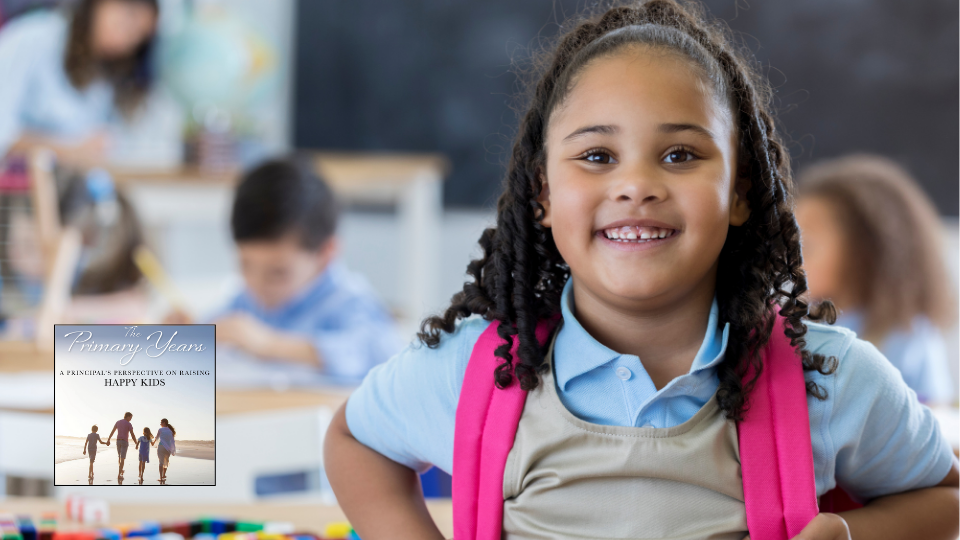
Letting Go, Little by Little: The Power of Gradual Independence
Letting go isn’t easy, but little by little, it can be one of the most empowering things we do as parents. Building independence is a journey for both parent and child, helping grow confidence, resilience, and self-belief along the way. Read on to explore practical ways to encourage independence gradually with Gail Smith.

The Little Things That Matter Most: How Small Moments Shape Your Child’s World
As parents, we often feel pressured to do something grand to make a real difference. But the truth is, the small, everyday moments leave the deepest imprint. Here are some simple ways you can make a big impact in your child’s life, one little action at a time.

How to Help Your Child Keep Friends: Simple Tips for Parents
Friendships are a big part of growing up. They help kids feel happy, supported, and confident. But keeping friends takes effort, and it’s not always easy. With a little guidance from you, your child can learn how to build lasting friendships and navigate social ups and downs.

Raising a Confident Child in Today’s Classroom: 5 Surprising Ways Parents Can Help
Confidence is a skill, not a trait and it grows with practice, praise, and patience. Every child develops it differently, and that’s okay. Explore the five simple ways to support your child’s confidence in today’s classroom.

Letting Go a Little: Why Gradual Independence Matters for Your Child’s Growth
Letting go a little doesn't mean stepping back; it means stepping alongside. Gail Smith shares how allowing our children to try, stumble, and learn with our support (not control) builds the confidence and independence they need to grow.

A child's mind is a garden—nurture it with love, or weeds of doubt will grow.
As caring parents, we play a vital role in shaping our children’s mental well-being. In this blog, we are exploring the thoughts that reflect the difference we can make to building good mental health in our children.

Parents can teach their children to make wiser choices.
As parents, you can teach your children to make wiser decisions. Follow these steps to guide them in learning how to pause, think, and consider the consequences of their actions, which will lead to wiser decision-making over time.

Encourage your child to be different
Encouraging your child to be different not only nurtures their individuality but also fosters critical thinking. Gail Smith shares insightful reasons why empowering children to question the status quo leads to personal growth. By teaching them not to always accept things as they are, we invite healthy curiosity and a deeper understanding of the world around them.

Teaching children about the value of making good choices
It’s important to encourage our children to recognize the difference and to understand that their choices can shape their lives in profound ways. Who they become is a reflection of the decisions they make. Gail Smith emphasizes the importance of empowering children to make their own choices, highlighting the positive impact it can have on their growth and development.

What you say to your child sticks.
Here are some of the most powerful phrases you can say to your children, no matter their age. Repeating these words often shows your unwavering love and support as they grow. Whether your child is a toddler or a teen, these statements can help build their confidence and emotional strength. Make them a regular part of your conversations to reinforce your commitment to their well-being.

Be Present for your child. It supports their mental Health
Being present for your child is one of the most impactful things you can do as a parent. It’s not about grand gestures or extravagant outings; it’s the simple, healthy, and regular engagement that truly nourishes your child's spirit and sense of well-being. Gail Smith emphasizes that these consistent interactions are crucial for your child's mental health. Read on to find out why.

Encouraging your child to write well
Some children struggle with writing, finding it difficult to start and continue their stories. Parents can help by providing engaging activities that spark motivation. Gail Smith offers suggestions to show children the power of the written word. Read on to discover more on how to encourage your child's writing journey!

It is important to speak well to your children
Children quickly pick up on what you say and how you say it, understanding the value you place on them. Gail Smith highlights six compelling reasons why speaking positively to children is crucial and the potential harm caused when we don’t. This insightful blog post sheds light on the importance of nurturing communication.

Keep A Look Out For Signs Of Stress In Your Child
In today's world, we often check in on our children's mental health. Social media and other challenges faced by youth remind us to stay vigilant. Gail Smith points out some common triggers that may indicate your child is under too much stress. By recognizing these signs, you can better gauge your child's well-being and offer support when needed. It's important to keep an eye out for these cues to ensure your child feels safe and supported.

The importance of your child attending school regularly
Ensuring your child is keen and interested in school is vital. When they feel it's important to attend, you can be reassured they are engaged with their school environment. Gail Smith shares five essential reasons why regular attendance is crucial for a well-adjusted child at school. Discover these insights to support your child's educational journey.

Let’s remind ourselves that as parents we are doing a great job
Your words, deeds, and actions are powerful examples for your child, shaping their understanding of life. Never underestimate the impact you're having on your child. Parenting in an imperfect world comes with its ups and downs, and it can sometimes feel like your efforts aren't making a difference. Gail Smith shares some reflections to remind us that our efforts are making a difference, even if the impact isn't always visible.

What brings joy to you and your child?
The more we share joy with our children, the deeper and richer connection we make with them. Sharing joy triggers a host of significant physiological and psychological changes that improve our physical and mental health. Gail Smith shares some examples of what brings joy to your child.

Build self confidence in your child. You can make a big difference.
Empowering your child with self-confidence is like giving them the keys to steer their own life's journey. Dive into Gail Smith’s tips for fun and effective ways to nurture and boost your child’s belief in themselves.

The importance of helping your child develop a positive body image
In today's world, our children can face many challenges when it comes to body image. It's important to help them develop a positive view of themselves. Gail Smith explains why this is so crucial and offers tips on how you can support your child in this process.

Build resilience in your child
Encourage your children to explore the world at their own pace, building resilience and happiness along the way. Read on to explore the strategies by Gail Smith, to help your child become more resilient!